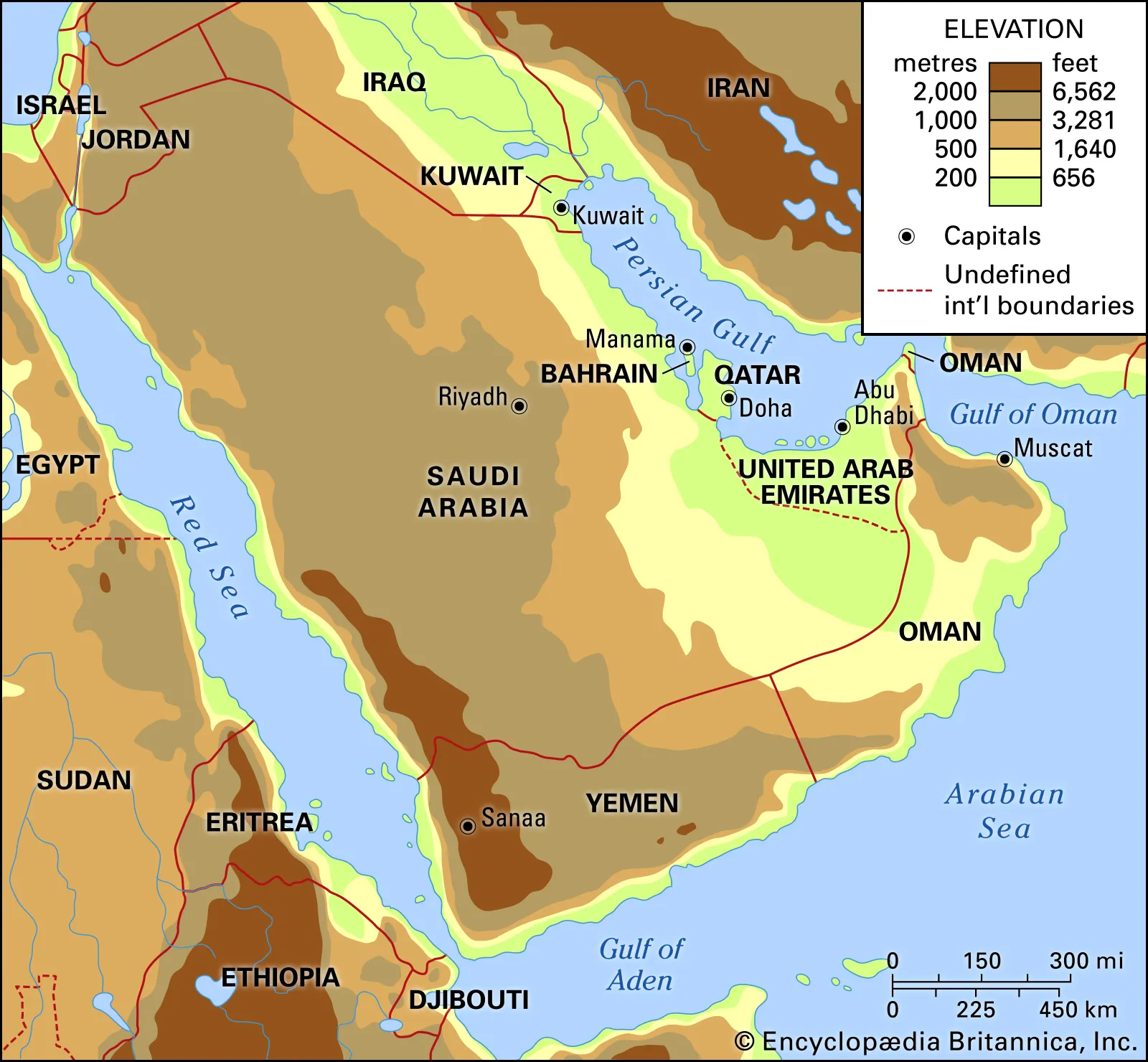Font size:
Print
Green Arabia
Arabian desert once had a lush and bountiful chapter known as Green Arabia
Context: The vast expanse of the Arabian Peninsula, now known for its arid deserts and scorching heat, may have once been a Green Arabia, life-sustaining corridor that facilitated the migration of early humans and animals out of Africa.
More on News
- New research published in Nature provides compelling evidence that Arabia experienced multiple humid phases over the last eight million years, transforming it from a formidable biogeographical barrier into a lush, green landscape.

Arabia: From Arid Barrier to Migration Bridge
- Stretching from Africa’s Sahara Desert in the west to India’s Thar Desert in the east, the Saharo-Arabian region has long been viewed as one of the planet’s largest and most inhospitable arid zones.
- For decades, scientists believed that this dry belt effectively blocked the movement of wildlife and hominins between Africa and Eurasia.
- However, new fossil and mineral evidence is challenging that assumption.
- Discoveries of water-dependent species such as hippopotamuses, crocodiles, and horses in Arabia dating back to the late Miocene and Pleistocene epochs suggest that the region supported vibrant ecosystems as recently as 74,000 years ago.
‘Green Arabia’ Hypothesis Gains Ground
- An international team of researchers, led by Dr. Michael Petraglia, director of the Australian Research Centre for Human Evolution, is behind the groundbreaking “Green Arabia” project.
- Supported by Saudi Arabia’s Heritage Commission, the team’s findings show that intermittent periods of rainfall transformed the Arabian Peninsula into fertile grasslands crisscrossed by rivers and lakes.
- One such location is the Jubbah Oasis, a remnant of an ancient lake in northern Saudi Arabia, which offered immediate archaeological evidence of past human occupation.
Speleothems: Tracing Ancient Rainfall Through Cave Formations
- To understand Arabia’s climatic history, the researchers analysed speleothems—mineral formations such as stalagmites and stalactites—in seven cave systems across central Saudi Arabia.
- These formations only develop under specific conditions: substantial rainfall, active vegetation, and the presence of carbonic acid to dissolve limestone.
- The team collected and radiometrically dated 22 speleothem samples using uranium-thorium and uranium-lead dating techniques. Their analysis revealed a series of humid phases in the region, occurring at:
- 7.44 to 6.25 million years ago
- 530,000 to 60,000 years ago
- These wetter intervals were relatively short, lasting thousands to tens of thousands of years, but they significantly reshaped Arabia’s ecosystem, allowing flora, fauna, and humans to thrive.
A Changing Climate and Human Expansion
- Lead author Monika Markowska noted that precipitation patterns became increasingly erratic over time, influenced by shifting monsoon systems and growing ice cover in the Northern Hemisphere during the Pleistocene.
- These climatic shifts had profound effects on human and animal migration.
- This emerging narrative recasts the Arabian Peninsula as a critical hub in human evolution, linking populations across continents and influencing migration paths during climatic shifts.
Lessons for a Warming World
- The implications of the Green Arabia project extend beyond ancient history. For over 15 years, Petraglia’s team has documented thousands of ancient lakes and archaeological sites, offering a long-term view of how ecosystems and human societies responded to changing environments.
- Technological advancements today, such as air conditioning and urban infrastructure, may delay migration from increasingly uninhabitable regions. Still, the fossil record reminds us that climatic shifts have long determined where humans could survive and thrive.
Subscribe to our Youtube Channel for more Valuable Content – TheStudyias
Download the App to Subscribe to our Courses – Thestudyias
The Source’s Authority and Ownership of the Article is Claimed By THE STUDY IAS BY MANIKANT SINGH





